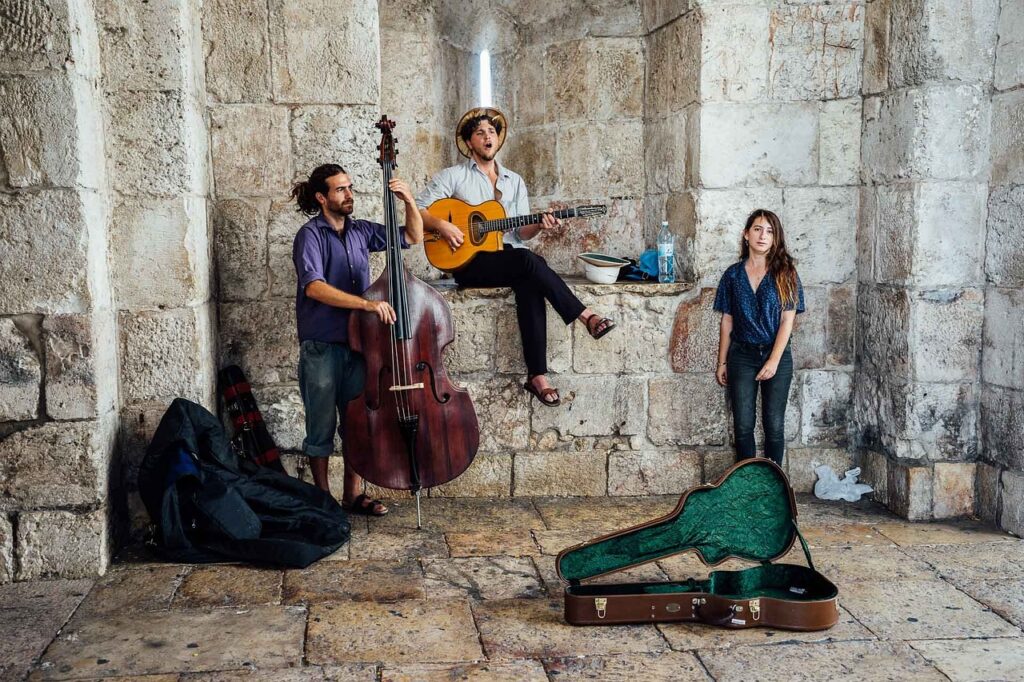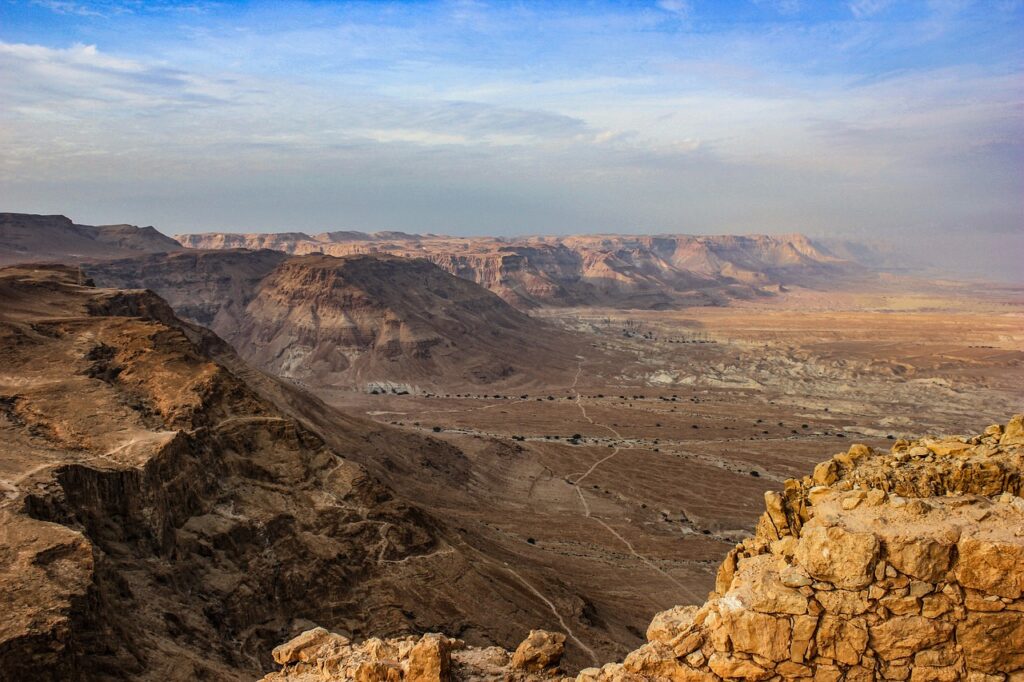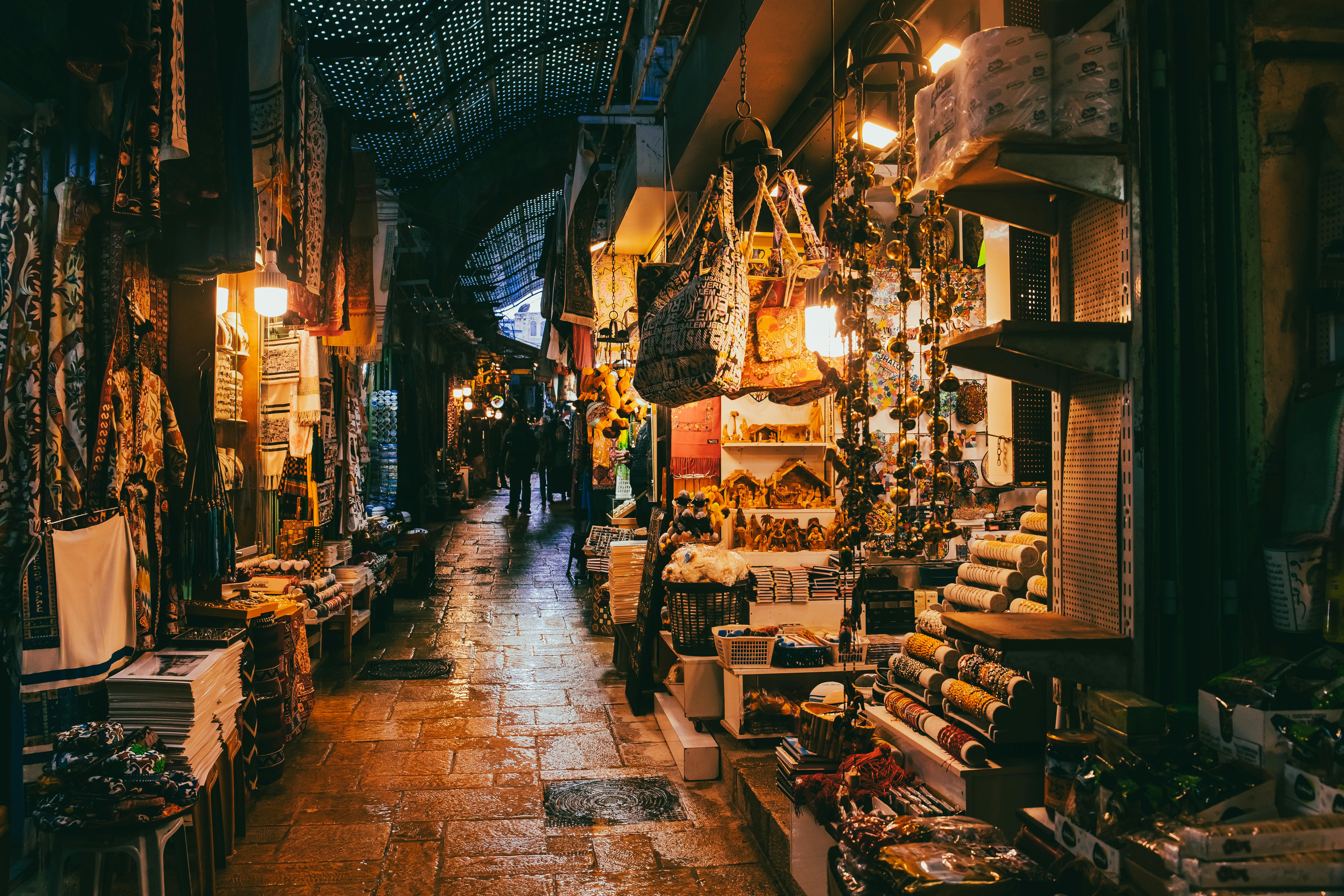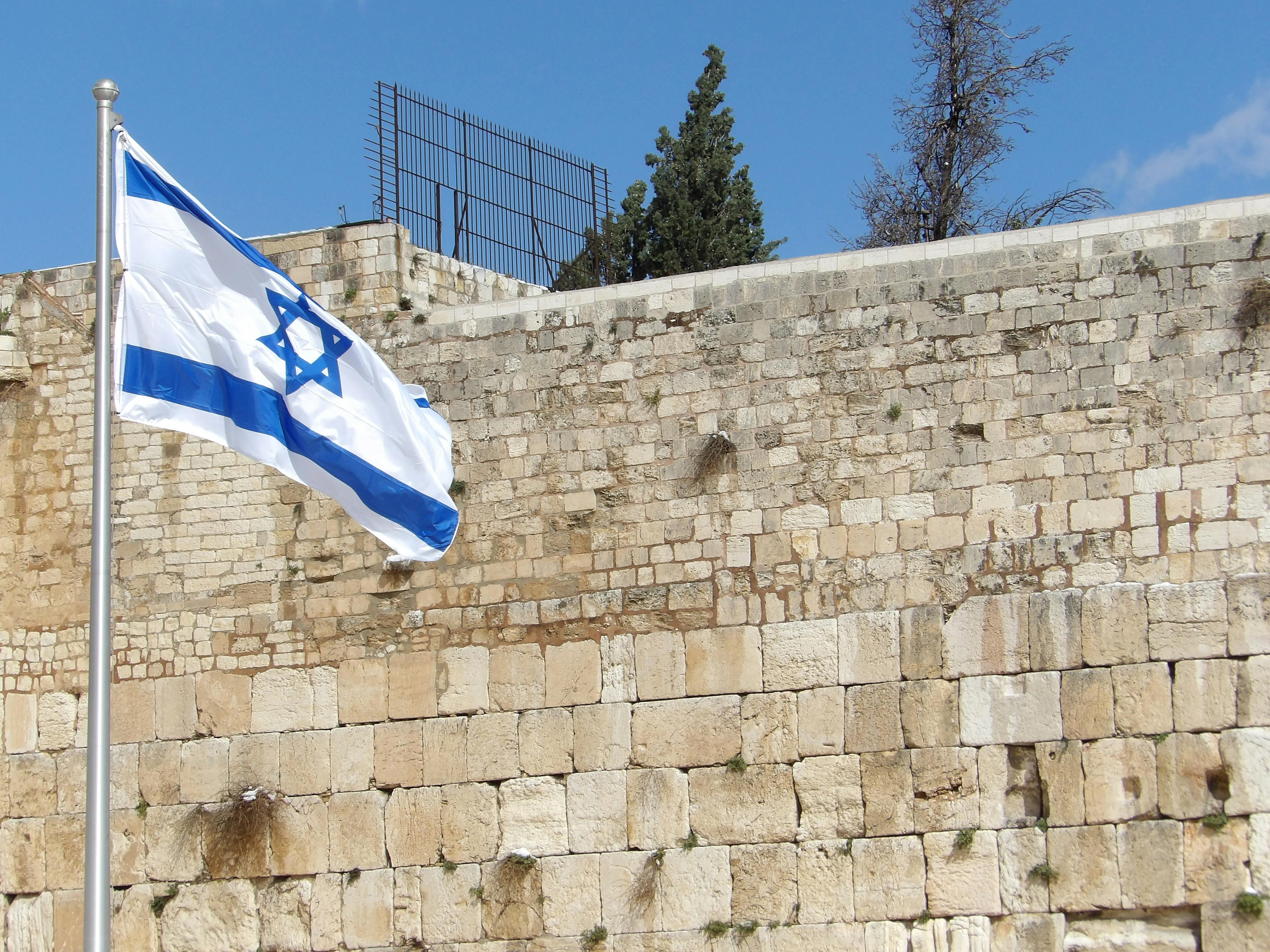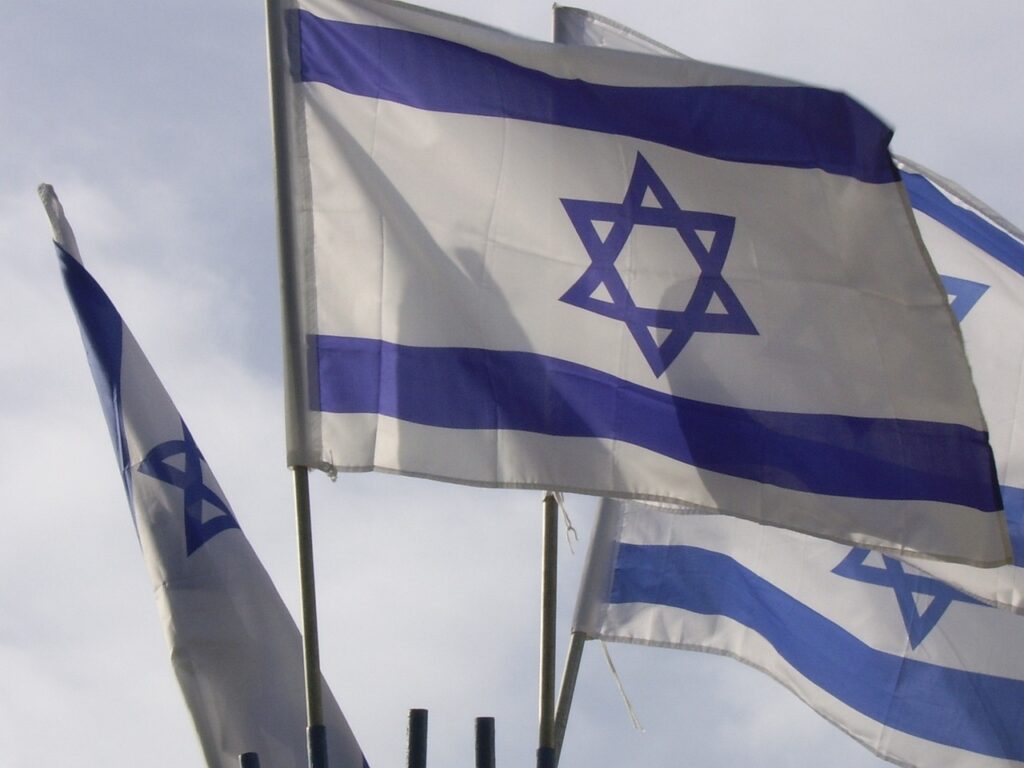Nestled in the Middle East is Israel, with its wealth of historic and cultural significance, a beckoning call for adventurers and faraway travelers. From the bustling streets of Tel Aviv to the ancient walls of Jerusalem, from the panoramic Galilee to the stunning Negev Desert, Israel is a destination that has something to offer to each kind of traveler.But is it really possible to experience all that Israel has to offer when your budget is limited? Definitely! With a little creativity and insider knowledge, you can explore Israel’s hidden gems without breaking the bank. From affordable accommodation options to delicious street food, from free attractions to budget-friendly transportation-we will share with you our top tips and secrets on how to make the most of your journey.
From the fine details of planning and preparation to how to make the most out of one’s time in this incredible country, this blog covers just about anything and everything related to backpacking in Israel on a broke budget. Fasten your backpack, and off we go on an unforgettable adventure in the Land of Milk and Honey, without breaking your wallet! Whether you are a seasoned traveler or just starting out, we will show that Israel is accessible to everyone, regardless of the budget.
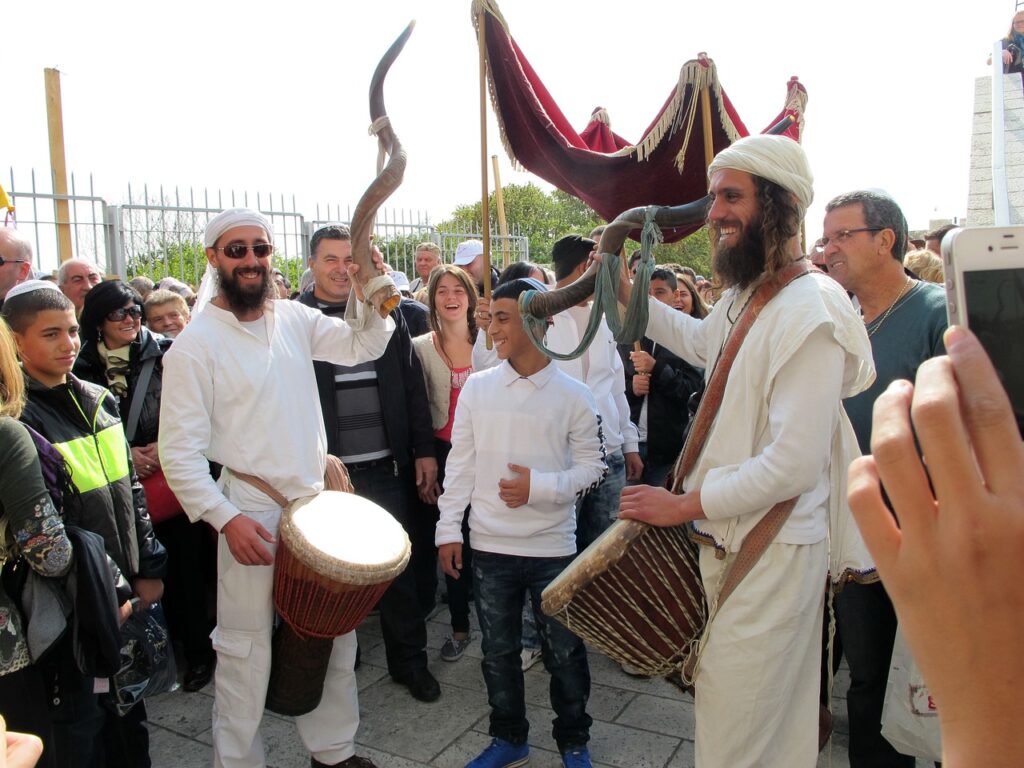
How to get there:
From Jordan
- Take the JETT (Jordan Express Tourist Transportation) bus from Amman to the King Hussein Bridge (also known as the Allenby Bridge).
- Cross the border on foot and take a taxi or bus from the Israeli side to Jerusalem or other destinations in Israel.
From Egypt
- Take the East Delta bus from Cairo or Sinai to the Taba Border Crossing.
- Cross the border on foot and take a taxi or bus from the Israeli side to Eilat or other destinations in Israel.
From Lebanon
- Note: Due to current political tensions, the border crossing between Lebanon and Israel is limited. However, you can still take a bus or taxi to the Nakura Border Crossing and walk across to the Israeli side.
- From the Israeli side, take a bus or taxi to destinations in northern Israel.
When to go:
Weather
- Spring (March to May): Mild temperatures and wildflowers make spring a beautiful time to explore Israel’s outdoors.
- Summer (June to August): Hot and humid, but perfect for beach-hopping and water activities.
- Autumn (September to November): Comfortable temperatures and harvest festivals make autumn a great time to visit.
- Winter (December to February): Cooler temperatures and rain, but fewer tourists and lower prices.
Major Jewish Holidays
- Rosh Hashanah (September/October): Jewish New Year, expect large crowds and higher prices.
- Yom Kippur (September/October): Day of Atonement, many businesses close, and public transportation is limited.
- Sukkot (September/October): Week-long holiday, expect crowds and higher prices.
- Passover (March/April): Week-long holiday, expect crowds and higher prices.
Best Time for Broke Backpacking
- Mid-January to mid-March: Cooler weather, fewer tourists, and lower prices make this an ideal time for budget travelers.
- Mid-April to mid-June: Comfortable temperatures and fewer crowds make this a great time to explore Israel.
Best Itineraries:
3 Days
- Day 1:
- Explore Tel Aviv’s beaches and markets
- Visit the White City Bauhaus architecture
- Enjoy the city’s nightlife
- Day 2:
- Visit Jerusalem’s Old City and Western Wall
- Explore the Church of the Holy Sepulchre and Dormition Abbey
- Wander through the vibrant Mahane Yehuda Market
- Day 3:
- Hike in the Ein Gedi Nature Reserve
- Float in the Dead Sea
- Visit the ancient fortress of Masada (optional)
1 Week
- Day 1-2:
- Explore Tel Aviv’s city, beaches, and nightlife
- Visit the Eretz Israel Museum and Yitzhak Rabin Center
- Day 3-4:
- Visit Jerusalem’s Old City, Western Wall, and Dormition Abbey
- Explore the Yad Vashem Holocaust Memorial and Israel Museum
- Wander through the historic neighborhood of Ein Kerem
- Day 5:
- Visit Masada and the Dead Sea
- Relax in the Ein Gedi Oasis
- Day 6-7:
- Explore the Galilee region
- Hike in the scenic hills and valleys
- Visit the Sea of Galilee and Jordan River
2 Weeks
- Day 1-3:
- Explore Tel Aviv’s city, beaches, and nightlife
- Visit the Carmel Market and Jaffa Port
- Day 4-6:
- Visit Jerusalem’s Old City, Western Wall, and Dormition Abbey
- Explore the Yad Vashem Holocaust Memorial and Israel Museum
- Wander through the historic neighborhoods of Ein Kerem and Rehavia
- Day 7-8:
- Explore the Galilee region
- Hike in the scenic hills and valleys
- Visit the Sea of Galilee and Jordan River
- Day 9-10:
- Visit the Golan Heights
- Hike and explore the scenic trails
- Enjoy the local wineries and cuisine
- Day 11-12:
- Relax in Eilat
- Snorkel or dive in the Red Sea
- Visit the nearby desert and canyon landscapes
- Day 13-14:
- Explore the Negev Desert
- Hike and camp under the stars
1 Month
- Week 1:
- Explore Tel Aviv and Jerusalem
- Visit the main sights and neighborhoods
- Week 2:
- Explore the Galilee region
- Hike and swim in the scenic hills and valleys
- Week 3:
- Visit the Golan Heights
- Hike and explore the scenic trails
- Enjoy the local wineries and cuisine
- Week 4:
- Relax in Eilat
- Snorkel or dive in the Red Sea
- Visit the nearby desert and canyon landscapes
3 Months
- Month 1:
- Explore Israel’s cities (Tel Aviv, Jerusalem, Haifa, etc.)
- Visit the main sights and neighborhoods
- Month 2:
- Hike and camp in Israel’s national parks (Galilee, Golan Heights, Negev Desert, etc.)
- Explore the scenic trails and landscapes
- Month 3:
- Volunteer or take a course (Hebrew language, permaculture, etc.)
- Relax and unwind in Israel’s beaches and deserts
6 Months
- Months 1-2:
- Explore Israel’s cities and national parks
- Hike and camp in the scenic trails and landscapes
- Months 3-4:
- Volunteer or take a course (Hebrew language, permaculture, etc.)
- Relax and unwind in Israel’s beaches and deserts
- Months 5-6:
- Consider a side trip to nearby countries (Jordan, Egypt, etc.)
- Continue exploring Israel’s hidden gems and off-the-beaten-path destinations
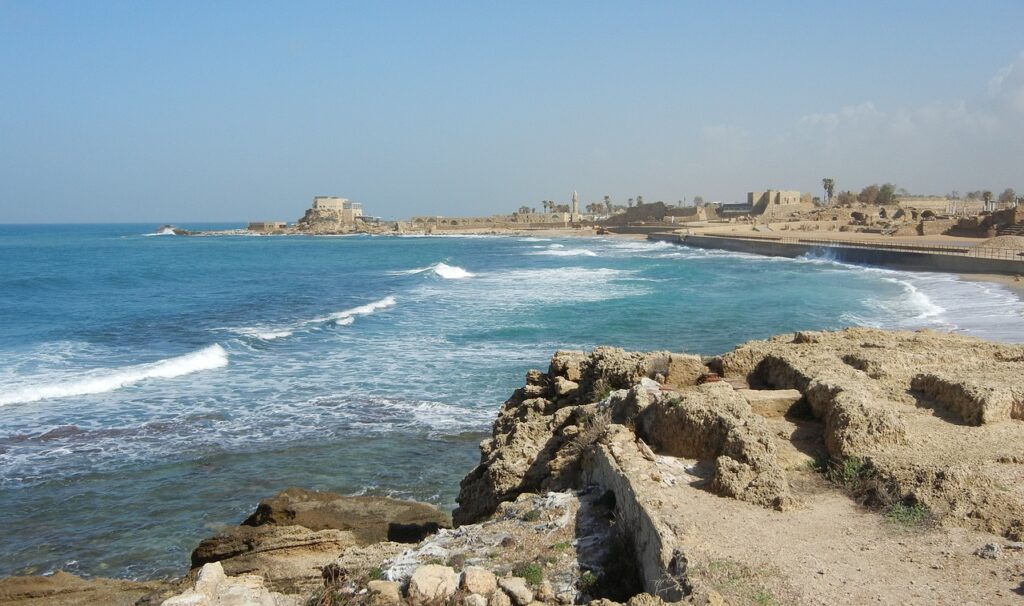
Transportation:
Israel’s public transportation network is efficient, reliable, and affordable, making it an excellent way to explore the country. In this guide, we’ll cover everything you need to know about buses, trains, and other public transportation options in Israel.
Bus Transportation
- Companies: Egged, Dan, and Metropoline operate in different regions.
- Routes: Extensive network covering cities, towns, and villages.
- Frequency: Regular departures, with increased frequency during peak hours.
- Tickets: Buy on the bus or at central bus stations.
Train Transportation
- Operator: Israel Railways
- Routes: Connecting major cities, including Tel Aviv, Jerusalem, and Haifa.
- Frequency: Regular departures, with increased frequency during peak hours.
- Tickets: Buy at train stations or online.
Other Public Transportation Options
- Sherut Taxis: Shared taxis operating on fixed routes.
- Private Taxis: Available, but more expensive than public transportation.
- Bike Rentals: Available in major cities, a great way to explore.
Top things to do:
Tel Aviv:
- Visit the Carmel Market (free)
- Explore the White City Bauhaus architecture (free)
- Relax on Tel Aviv Beach (free)
- Visit the Eretz Israel Museum (40 ILS)
- Explore the vibrant nightlife (prices vary)
- Visit the Tel Aviv Port (free)
- Explore the trendy neighborhood of Neve Tzedek (free)
- Visit the Museum of Contemporary Art (40 ILS)
- Go to a movie at the Tel Aviv Cinematheque (40 ILS)
- Take a walk along the Yarkon River (free)
- Visit the Tel Aviv University Botanical Garden (free)
- Explore the Florentin neighborhood (free)
- Visit the Israel Philharmonic Orchestra (prices vary)
Jerusalem:
- Explore the Old City (free)
- Visit the Western Wall (free)
- Visit the Church of the Holy Sepulchre (free)
- Visit the Yad Vashem Holocaust Memorial (free)
- Wander through the historic neighborhood of Ein Kerem (free)
- Visit the Jerusalem Botanical Gardens (30 ILS)
- Explore the vibrant Mahane Yehuda Market (free)
- Visit the Israel Museum (40 ILS)
- Take a walk along the city walls (free)
- Visit the Mount of Olives (free)
- Explore the historic neighborhood of Yemin Moshe (free)
- Visit the Jerusalem Biblical Zoo (40 ILS)
Negev Desert:
- Visit the ancient city of Avdat (30 ILS)
- Explore the scenic trails and landscapes (free)
- Relax in the Ein Gedi Oasis (free)
- Visit the Negev Museum of Art (30 ILS)
- Take a hike in the Negev Desert (free)
- Visit the Bedouin village of Wadi Attir (free)
- Explore the Makhtesh Ramon (free)
- Visit the Negev Nuclear Research Center (30 ILS)
- Take a tour of the Negev Desert (prices vary)
Dead Sea:
- Float in the Dead Sea (free)
- Visit the ancient fortress of Masada (40 ILS)
- Explore the scenic trails and landscapes (free)
- Relax in the Ein Gedi Oasis (free)
- Visit the Dead Sea Museum (30 ILS)
- Take a hike in the Dead Sea area (free)
- Visit the Qumran Caves (30 ILS)
- Take a tour of the Dead Sea (prices vary)
- Relax at a Dead Sea beach (free)
Eilat:
- Snorkel or dive in the Red Sea (prices vary)
- Visit the nearby desert and canyon landscapes (free)
- Enjoy the local cuisine and nightlife (prices vary)
- Relax on Eilat Beach (free)
- Visit the Eilat Museum (30 ILS)
- Take a hike in the Eilat area (free)
- Visit the Eilat Marina (free)
- Take a boat tour of the Red Sea (prices vary)
- Visit the Coral Beach Nature Reserve (30 ILS)
Golan Heights:
- Visit the Golan Heights Winery (40 ILS)
- Take a tour of the Golan Heights (prices vary)
- Visit the ancient city of Katzrin (free)
- Explore the Golan Heights Museum (30 ILS)
- Take a hike in the Golan Heights (free)
- Visit the Druze village of Majdal Shams (free)
- Explore the scenic hills and valleys (free)
- Visit the Golan Heights Brewery (30 ILS)
- Take a tour of the Golan Heights wine country (prices vary)
Galilee:
- Visit the Sea of Galilee (free)
- Visit the ancient city of Tzfat (free)
- Explore the artists’ colony in Tzfat (free)
- Visit the Tzfat Museum of Art (30 ILS)
- Take a hike in the Galilee Mountains (free)
- Visit the Kibbutz Inbar (free)
- Explore the nearby town of Rosh Pina (free)
- Visit the Galilee Museum (30 ILS)
- Take a tour of the Galilee (prices vary)
Food:
Israel, a country in the Middle East, rich in history, bursting with culture, and full of stunningly beautiful landscapes, is also a haven for food lovers. Its cuisine is an extremely palatable amalgamation of traditional Middle Eastern flavors, Mediterranean ingredients, and modern twists, reflecting the diverse cultural heritage of its people.
From the bustling streets of Tel Aviv to the ancient alleyways of Jerusalem, and from the scenic coastlines of the Mediterranean to the rugged landscapes of the Negev Desert, Israel’s food scene is as varied and exciting as the country itself. Whether one craves spicy street food, fresh seafood, or traditional Jewish fare, Israel has something to offer the most diverse type of food lover.
One of the best things going for the food scene in Israel is that there are so many fresh and locally sourced ingredients. From the colorful markets and souks of Jerusalem and Tel Aviv to the roadside stalls and farms of the countryside, Israel is a country that truly takes pride in its produce. Fresh fruits and vegetables, artisanal cheeses and breads, and fragrant spices and herbs are all quickly available and feature powerfully in Israeli cuisine.
Food from the street is yet another thing that Israeli cuisine is famous for, reflecting the country’s cultural diversity and love of good food. From the traditional dishes: falafel, shawarma, and hummus, to more modern inventions like sabich and bourek, Israel’s street food scene is a foodie’s dream come true. And the best part? Most of the dishes are extremely affordable, starting from around 10-20 ILS (~ $2.80-5.60 USD) for a serving.
Besides street food, Israel is famous for traditional Jewish cuisine that is influenced by the rich cultural heritage of the country. Classic dishes like cholent, kugel, and gefilte fish are staples in this cuisine and are usually served in conventional Jewish restaurants and houses across the nation. For those who feel like trying something new, modern Jewish cuisine in Israel is an interesting combination of traditional flavors mixed with a modern twist.
Israeli food is also closely connected with the cultural and religious life of the country. For instance, the Jewish tradition of keeping kosher is widely observed in Israel today, with many restaurants and food outlets across the country offering kosher options. In its turn, the country’s significant Muslim and Christian populations have given their own distinctive culinary traditions, too, represented by many Arabic and Christian restaurants and cafes across Israel.
You will notice while traveling through the land of Israel that food also plays a main role in the social and cultural life of the people. The concept of mealtime is very much perceived as time for communicating with family and friends. Food is one of the major means of displaying hospitality and generosity to your guests. This is emphasized in food and hospitality, as evidenced by the many traditional Israeli dishes that are designed to be shared with others, such as the classic Sabbath meal of cholent and kugel.
In Israel, mealtimes are long and leisurely, and food is savored and enjoyed in the company of others. This approach to food and eating is reflected in the many outdoor cafes and restaurants throughout the country, where locals and visitors alike gather to enjoy good food and company in the warm Israeli sunshine.
Israel’s food scene is also inextricably linked to the country’s geography and climate. The country has a Mediterranean coastline with a host of fresh seafood, while its rich valleys and hills – in particular, the Galilee – and the desert of Negev grow a variety of fruits, vegetables, and grains. It goes with a large amount of characteristics, like hot and dry in summer, cool and rainy in winter, that made the country shape up its culinary history with hearty stews and soups during winter and lighter, fresher dishes during summer.
As one travels deeper into Israel’s food scene, he realizes that much of the country’s traditional dishes have been influenced by the complex history and cultural heritage of the country. For instance, the country’s Sephardic Jewish community brought with it a rich tradition of Mediterranean cuisines, while the Ashkenazi Jewish community contributed a hearty tradition of Eastern European dishes. As a similar example, Arabs and Christians coming into the country brought with them their own special traditions of cuisines, which are well reflected in the numerous Arabic and Christian restaurants and cafes throughout the country.
To put it bluntly, the food in Israel truly reflects the rich cultural heritage and love for good food that the country has. From delicious street food to traditional Jewish cuisine, from fresh produce to modern twists and flavors, Israel has something to offer every kind of food lover. Whether you are a foodie seasoned by travel and taste or just looking to try something new, Israel’s food scene is an experience you will not want to miss.
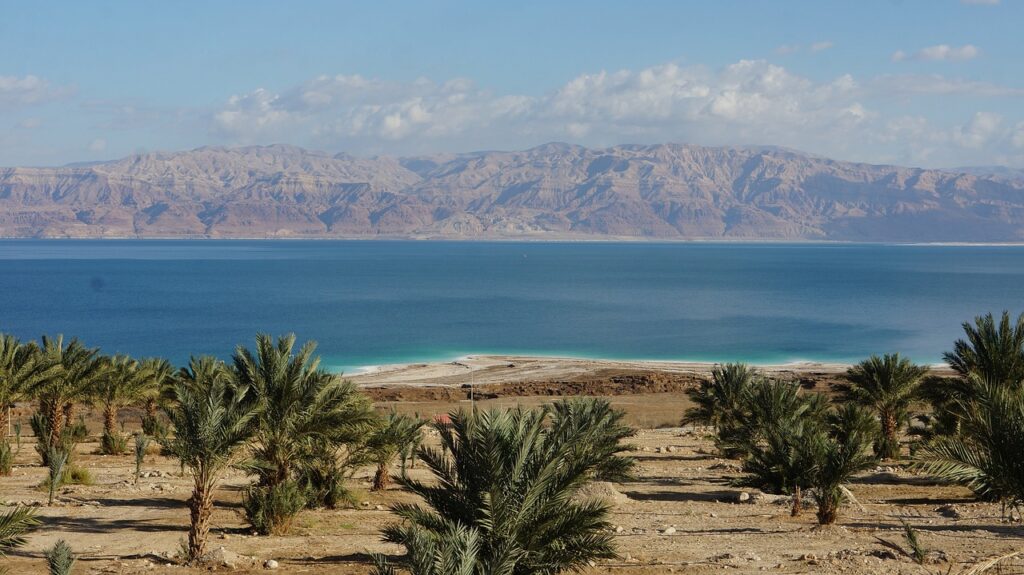
Culture:
Israel, a country lying in the Middle East, is a real melting pot of cultures, brewed in its rich history, geography, and the blending of world traditions. This country is so unique in its cultural landscape-a fascinatingly mixed ancient and modern, traditional and innovativeMismatch culture that reflects the complex and multifaceted nature of Israeli society.
The very core of Israeli culture deeply lies within community and family, deeply influenced by Jewish tradition and its values. The concept of “mishpacha” (family) is central to Israeli life: families are tight, and there’s a strong emphasis on social connections and relationships. This is further demonstrated through the numerous festivals and celebrations that occur throughout the year, such as the weekly dinner at Shabbat, Passover Seder, and the joyous celebrations of Hanukkah and Purim. These festivals and celebrations not only bring family and friends together but also serve as important reminders of Israel’s rich cultural heritage and the values that underpin it.
The Israeli culture is also greatly influenced by the geographical location at the juncture of Europe, Asia, and Africa. This rare country shows a blend of all these traditions in one, which may be attributed to the Jewish, Arab, Mediterranean, and Middle Eastern influences on the music, art, literature, and gastronomy. From the colourful markets and souks of Jerusalem and Tel Aviv to the breathtaking architecture of the Bahai Gardens in Haifa, Israel’s rich cultural heritage is a tapestry of the highest order, woven with threads from so many different traditions.
Arguably one of the most characteristic aspects of Israeli culture is its love of argumentative debate and discussion, which in fact reflects strong intellectual curiosity and the ability to engage in critical thinking. From the stormy debates in every café and coffee shop to the heated discussions in academic and intellectual circles, the love of argument and the exploration of complex ideas and issues are well-known Israeli traits. This spirit of debate and discussion is also reflected in the country’s vibrant media landscape, with a wide range of newspapers, magazines, and online publications catering to diverse perspectives and opinions.
Not only does Israel boast a rich cultural heritage, but it is also a hub of innovation and creativity, hosting a thriving arts scene, and a strong tradition of scientific and technological innovation. From the breathtaking arts on display at the Israel Museum in Jerusalem to the inventive technology and startups fuelling the nation’s economy, Israel is a place where creativity and innovation truly come alive. The various styles and influences embedded within the country’s vibrant music scene are a wide reflection, from traditional Jewish right through to modern rock and pop.
Israeli culture, while rich in its strengths and attractions, does not lack in complexities and challenges. The ongoing conflict between this country and the Palestinians, not to mention complex relations on all sides with Arab neighbors, has touched every area of Israeli society and culture. The legacy of the Holocaust and the struggle for peace and security have shaped the country’s cultural identity and informed the values and traditions that help to define it. However, aside from these deterrents, Israeli culture is still a buoyant and dynamic force, reflecting the resilience of adaptation and firm resolve to thrive in hostile conditions.
Over the years, there has been greater awareness that Israeli culture must be preserved and promoted within and outside the country. This has resulted in various initiatives and programs to expose Israeli culture, from musical and dance performances to exhibitions of artworks and literary festivals. The government of Israel has also initiated a range of programs aimed at cultural exchange and understanding between Israel and other nations through artist residencies, cultural festivals, and education exchange programs.
The culture of Israel is a vital and dynamic force as this country continues to grow and evolve, standing in all its complexities, contradictions, and creativity. From the rich cultural heritage to the vibrant arts scene, the culture represents a source of pride and inspiration to the Israelis and people from around the world. Israel, in being a land that is both ancient and modern, traditional and innovative, the culture of its people is a faithful reflection of its status as a bridge between East and West, a crossroads of cultures, and a beacon of hope and creativity in an ever-changing world. Its complex and multi-identity nature provides another influence upon the cultural landscape of this country-a reflection of the different backgrounds and experiences of its citizens. From the ultra-Orthodox Jewish communities of Jerusalem and Bnei Brak to the secular and liberal communities of Tel Aviv and Haifa, Israel represents a country with many cultures and identities that add to its rich and dynamic cultural heritage. This is well echoed in the cuisine, which brings together the culinary traditions of Jewish, Arab, Mediterranean, and Middle Eastern cuisines into one unique and mouthwatering tradition.
Accommodations:
Israel is a country packed with fascinating history, enormous culture, and beautiful landscapes; this country is a backpacker’s and low-budget traveler’s haven. Although many may think that Israel is expensive, that couldn’t be farther from the truth, as broke backpackers can have the most unique, crazy, and amazing experiences in the country’s hostels with just a little creativity and flexibility.
One of the best-kept secrets of the hostel scene in Israel is that some of the cheapest options provide the most memorable experiences. These budget-friendly hostels are usually run by passionate, sometimes eccentric individuals who take the initiative in making sure a communal atmosphere and sense of camaraderie are fostered among guests. They often have a DIY ethos, with makeshift decorations, colorful murals, and quirky amenities that add to their charm.
Staying in these cheap and cheerful hostels is a great way to meet fellow travelers and locals, and to experience the authentic, unpolished side of Israeli culture. You might find yourself sharing a room with a group of rowdy backpackers, or striking up a conversation with the hostel owner, who might regale you with stories of their own travels and adventures.
Another advantage of staying in cheap hostels is that they often have a relaxed and flexible atmosphere that allows you to act like you’re still at home and do whatever you want. You may discover impromptu jamming sessions, cooking classes, or yoga workshops, often prepared by the staff working at the hostel or by other guests. This will make for great spontaneity in meeting new people, learning new skills, and taking in the local culture in a very unique and unforgettable type of way.
Of course, the flip side of staying in ultra-cheap hostels is being prepared for the unexpected, whether it be the odd cockroach, the broken shower, or the noise from a loud neighbor. These slight inconveniences are usually more than compensated for by the warm hospitality, lively atmosphere, and sense of community pervading these budget-friendly establishments.
While in Israel, the scene for hostels becomes vibrant and eclectic, thoroughly reflecting the country’s rich cultural heritage and real reputation among travelers and adventurers alike. From the bustling streets of Tel Aviv to the ancient alleyways of Jerusalem, from the scenic coastlines of the Mediterranean to the rugged landscapes of the Negev Desert, Israel’s hostels offer a unique and memorable experience for broke backpackers and travelers on a budget.
One of the distinguishing features of the State of Israel’s hostels is the closely knit relationships and friendships formed between guests and staff. Many hostels in Israel have managed to maintain a family atmosphere where guests and employees come together regularly for dinner, activities, or impromptu celebrations. Most of all, this sense of community is a huge part of the experience that comes with staying at a hostel in Israel, and sets it apart from other destinations. Another thing that really makes the hostels of Israel so special is their rich cultural heritage. From the ancient history and archaeology of Jerusalem to the vibrant arts and culture scene of Tel Aviv, Israel is a country that moves in the deep waters of history, culture, and tradition. This is reflected perfectly in various ways within the hostels, which quite often have a strong focus on cultural exchange, education, and community building. Many hostels have cultural programs, workshops, and activities that introduce their guests to the culture in a very authentic way. Besides all cultural programs and activities in many of the hostels in Israel, there are complementary amenities and services, which would make the stay more appealing to the needs of budget travelers. From free Wi-Fi and laundry facilities to communal kitchens and lounges, hostels in Israel very often provide everything a traveler might need to feel at home. Organized tours and activities, such as hiking trips, city tours, and cultural workshops, are also offered by many hostels to give guests the best experiences of Israel’s culture, history, and nature.
Despite the many advantages of staying in cheap hostels, there is also a number of disadvantages that may come along with it. One of the major challenges of staying in budget hostels is the lack of amenities and services which have been taken for granted in more expensive establishments. For instance, most budget hostels in Israel may not have air conditioning, elevators, or other modern amenities that are common in more expensive hotels and hostels. Secondly, the rooms and amenities in budget hostels are not always clean or in good condition, which can therefore pose a challenge to travelers who have been accustomed to luxurious accommodations.
However, for many travelers, the advantages of staying in low-budget hostels outweigh the disadvantages. For one, budget hostels are really cheaper compared to the higher-end hotels and hostels; secondly, they offer an experience which is original and close to reality, allowing travelers to interact with the culture and community of the place they visit. By staying in a cheap hostel, guests can experience culture, history, and nature without hurting their wallet too much, especially in Israel, where the scene is particularly vibrant and eclectic.
Nightlife:
It is a country whose rich history, vibrant culture, and breathtaking landscapes are altogether combined with unique and exciting nightlife. From the bustling streets of Tel Aviv down to the ancient alleyways of Jerusalem, from the scenic coastlines of the Mediterranean to the rugged landscapes of the Negev Desert, Israel’s nightlife scene itself is as diverse and dynamic as that of the country.
The cities of Israel all come alive with the most brilliant energy which is contagious and exhilarating at sunset. From raucous belly laughs, pop melodies, or general chatter-the air is thick with people of different ages and backgrounds out to enjoy the famous nightlife of the country. It offers everything from rooftop bars and clubs to underground music venues and dance parties, whether one wants to dance all night, have a quiet drink with friends, or simply feel the special energy of Israel’s cities after dark. One of the things that sets nightlife in Israel apart from other destinations is its unique traditional and modern cultural mix. For example, in Israel’s cities, ancient synagogues and mosques contrast with modern bars and clubs. This eventually creates a fascinating and eclectic cultural terrain, the likes of which one will find no place on earth. This aspect of fusing old with new again finds expression in Israel’s nightlife, where local folk music and dancing is accompanied by electronic and hip-hop beats.
Equally, diversity and inclusiveness are also characteristics of Israel’s nightlife. Since the country generally attracts people from anywhere in the world, either for tourism or to live and work, the nature of its nightlife is no different, with bars, clubs, and music venues targeting a wide range of tastes and preferences. Whether you’re a local or a tourist, Israel’s nightlife scene is not discriminative; it has something for everyone to take in and enjoy.
In addition to its diversity and inclusivity, Israel’s nightlife scene is also known for its energy and creativity. From the impromptu dance parties that break out on the streets of Tel Aviv to the elaborate themed parties that take place in Jerusalem’s underground music venues, Israel’s nightlife scene is always surprising and always exciting. Its unique blend of traditional and modern culture, its diversity and inclusivity, and its energy and creativity make Israel’s nightlife scene one that you will not want to miss.
As the night wears on and the sun begins to rise over Israel’s cities and landscapes, the country slowly brings its nightlife scene to a close. But as the bars and clubs begin to shut down, and the streets become increasingly free of people, the energy and dynamism of Israel’s vibrant night scene still lingers on, leaving an indelible mark on whoever experiences it. Whether you’re a seasoned partygoer or just looking for a unique and exciting experience, Israel’s nightlife scene has something for everyone, and is an experience that you’ll never forget.
Nightlife in Israel is also firmly intertwined with the country’s vibrant music scene. From traditional Jewish and Arabic influences to modern expressions of rock, pop, and electronic beats, the diversity in culture and creativity within the country is truly palpable. Live music performances can be found in bars, clubs, and music venues ranging from intimate acoustic sets to full-scale concerts and festivals. Live music events introduce great opportunities to experience the lively music scene of Israel and to discover new and exciting artists and bands. Another aspect closely related to nightlife in Israel is, of course, the food and drink culture of this country. Israel is well-known for its delicious cuisine, which effectively merges traditional flavors of the Middle East with modern twists and ingredients. Many bars and clubs in Israel offer a wide selection of food and beverages, from the traditional snacks of falafel and hummus to modern cocktails and craft beers. Food and drinks are a great way to get a taste of Israel’s vibrant gastronomic scene and enjoy the country’s legendary hospitality.
While Israel is continuously growing and morphing as a nightlife and entertainment destination, it goes without saying that the singular blend of traditional and modern culture, its diversity and inclusivity, and its energy and creativity will continue to make the country a standout destination for partygoers and music lovers from all corners of the world. Whether you wish to dance into the night, have a quiet drink with friends, or merely experience the special feel of Israel’s cities at night, the country has something for every nightlife desire and is an experience that should not be missed.
Israel’s vibrant nightlife scene reflects the young, energetic vibe of its population. With a high percentage of young people, Israel’s cities are always buzzing with energy and activity, and the nightlife scene is no exception. From beachside bars and clubs in Tel Aviv to underground music venues in Jerusalem, the State of Israel has one of the most creative, lively, and thrilling nightlife scenes in the world that tourists visiting the country for its nightlife will definitely need to explore.
Backpacking Israel costs:
Daily Budget Breakdown:
- Accommodation: 55-70 ILS (~ $15-20 USD) per night for a hostel dorm bed
- Food: 10-20 ILS (~ $2.80-5.60 USD) per meal for street food, markets, or cooking your own meals
- Transportation: 5-10 ILS (~ $1.40-2.80 USD) per ride for public buses, or 20-30 ILS (~ $5.60-8.40 USD) for a day pass
- Attractions: 10-20 ILS (~ $2.80-5.60 USD) per person for entrance fees to historical sites, museums, and national parks
- Miscellaneous: 5-10 ILS (~ $1.40-2.80 USD) per day for souvenirs, snacks, and other incidentals
Total daily budget: 250-400 ILS (~ $30-40 USD)
Conclusion:
As you wrap up your budget tour through Israel, you will find yourself with memories of the country etched in your heart. You may have been traveling on a broke budget, but you would have experienced the warm hospitality of the Israeli people, the history and culture of the country, and the landscapes-both natural and artificial.
From the frenetic streets of Tel Aviv to the ancient alleyways of Jerusalem, from the scenic coastlines of the Mediterranean to the rugged landscapes of the Negev Desert, Israel is all about surprises and contradictions. Yet, with all these complexities and an array of challenges thrown at it, Israel is basically a country defined by its warmth, hospitality, and an iron-clad commitment to living life to the fullest.
As a poor backpacker, you might have had to get creative and resourceful in order to make the most of your time in Israel. But in doing so, you shall discover a side of the country that most tourists never get to see. You’ll experience first-hand the flavors and aromas of Israeli food, the energy of its nightlife, or, better yet, the warm and welcoming spirit of the Israelis themselves.
So as you put away your backpack and say goodbye to Israel, remember that what happened here stays in your life forever. And who knows? You may very well find yourself returning to Israel one day, eager to experience once again the magic and wonder of this incredible country.
